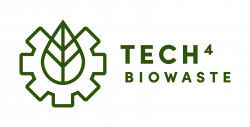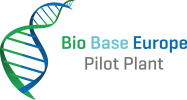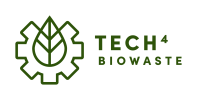Difference between revisions of "Gas fermentation"
| [checked revision] | [checked revision] |
Tanja Meyer (talk | contribs) Tags: Visual edit Manual revert |
|||
| (15 intermediate revisions by 4 users not shown) | |||
| Line 98: | Line 98: | ||
| class="cd-background-lightgreen cd-text-darkgreen" style="text-align:center" |● | | class="cd-background-lightgreen cd-text-darkgreen" style="text-align:center" |● | ||
|} | |} | ||
=== Avecom === | |||
{{Infobox provider-gas fermentation|Company=Avecom|Country=Belgium|Contact=sales@avecom.be|Webpage=www.avecom.be|Technology name=Power To Protein|Feedstock=CO2, O2, H2|Product=Single Cell Protein|Image=avecomlogo.png|TRL=6}} | |||
Avecom is a recognized innovator in sustainable single cell protein technology development and biomass fermentation and subsequent downstream processing, for the production of animal feed & food ingredients; a circular economy fit for the 21th century. | |||
[https://avecom.be/feed-and-food/h2bio/ Power to Protein] covers the sustainable production of protein-rich ingredients for human consumption. [https://www.avecom.be Avecom] makes use of single cell micro-organisms or bacteria that naturally consume hydrogen and oxygen gas, both derived from green electricity by means of electrolysis, and carbon dioxide to produce a biomass rich in protein and vitamin B12. Further drying of the biomass will produce a powder that can be further applied as food ingredient. The Power to Protein process uses its additional resources like nitrogen without any loss to the environment, therefore is not an emitter but a net consumer of carbon dioxide. | |||
The patented technology has received the [https://solarimpulse.com/solutions-explorer/power-to-protein-1 SolarImpulse Efficient Solution label] in May 2021. Power To Protein was also the [https://co2-chemistry.eu/award-application/ 2nd winner of the Best CO2 Utilisation 2022 Award], granted at the “Conference on CO2-based Fuels and Chemicals”, 23–24 March 2022, hybrid event. | |||
=== Bio Base Europe Pilot Plant (BBEPP) === | === Bio Base Europe Pilot Plant (BBEPP) === | ||
| Line 120: | Line 129: | ||
=== Vlemish Institute of Technology (VITO) === | === Vlemish Institute of Technology (VITO) === | ||
... | ... | ||
=== Universidade Da Coruña - BIOENGIN group === | |||
{{Infobox provider-gas fermentation|Company=Universidade Da Coruña - BIOENGIN group|Country=Spain|Contact=Prof. Christian Kennes | |||
Kennes@udc.es|Webpage=http://bioengingroup.es|Technology name=Bioconversion/fermentation process|Capacity=|TRL=1-6|Atmosphere=|Nutrients=|pH=|Pressure=|Temperature=10 - 70|Other=|Feedstock=CO2, CO, syngas (CO, H2, CO2, N2), industrial emissions (e.g., steel industry, refinery, biogas plant)|Product=Ethanol, Butanol, Hexanol, Carboxylic acids (e.g., acetic, butyric, caproic, caprylic), Lactic acid, Formic acid, Biopolymers (PHA, PHB), 2,3-Butanediol, Acetone, Proteins (SCP)}} | |||
<ref>{{Cite book|author=Kennes C and Veiga MC|year=2013|editor=Kennes C and Veiga MC|book_title=Air pollution prevention and control : bioreactors and bioenergy, 549 pp,|publisher=John Wiley & Sons|place=Chichester, United Kingdom|ISBN=978-1-119-94331-0}}</ref>BIOENGIN group at UDC has been working for more than a decade on the optimization of many different kinds of bioreactors for gas treatment and bioconversion, both at lab-scale and at pilot/industrial-scale (conventional stirred tank fermentors, biofilters, biotrickling filters, bioscrubbers, airlift bioreactors, etc.) (Kennes and Veiga, 2013). Over the recent past it has been largely been developing and optimizing bioreactors for CO2, CO and syngas fermentation, both with native and engineered pure cultures as well as with mixed consortia. | |||
=== VTT Technical Research Centre of Finland === | === VTT Technical Research Centre of Finland === | ||
Revision as of 15:00, 21 September 2022
| Technology | |

| |
| Technology details | |
| Name: | Gas fermentation |
| Category: | Conversion (Biochemical processes and technologies) |
| Feedstock: | Gaseous carbon source (CO, CO2, methane) |
| Product: | Hydrocarbons, alcohols, bio-based polymers |
A gas fermentation is an industrial fermentation process that uses a gaseous feedstock, containing a mixture of carbon monoxide (CO), carbon dioxide (CO2), methane (CH4), and hydrogen (H2) , to produce a specific product, like fuels or chemicals, by microbial conversion.
Feedstock
Origin and composition
For a gas fermentation, gaseous carbon sources (CO, CO2 or CH4) are used as a feedstock. H2 can be added as additional energy source, and is required when CO2 is the only carbon source present. The gases can have various origins: (1) from the atmosphere via direct air capture technology, (2) from fossil industrial point sources, such as syngas from steel and cement emissions, (3) from biogenic industrial point sources, such as reformed biogas and fermentation off gas, or (4) from the gasification of various organic materials, like woody biomass and municipal solid waste (MSW).
Pre-treatment
The input gas stream, containing the main constituents CO, CO2, CH4, and H2, can also contain impurities such as particulates, tars, BTEX (aromatics grouped as benzene, toluene, ethylene, xylenes), sulphur compounds (e.g., H2S and COS), halogens, and other inhibiting gases. These are generated e.g., during gasification or pyrolysis and can be present in fluctuating quantities. Gas-fermenting microorganisms are able to grow in the presence of low levels of impurities, however, some impurities necessitate near complete removal. Particulates can be removed by cyclone separators and filters. Tars can be condensed and removed by quenching hot syngas, or can be reformed by heating at 800-900°C in accompaniment with heterogeneous catalysis using nickel or dolomite, generating additional syngas.
Process and technologies
Production organisms
A gas fermentation process depends on microorganisms that are able to digest gaseous carbon sources. Best known for this ability are acetogenic bacteria using the Wood-Ljungdahl pathway or acetyl-CoA pathway to fix and convert CO/CO2 and H2 to biomass and products. They are able to synthesize useful products such as ethanol, butanol and 2,3-butanediol within an anaerobic, oxygen-free atmosphere, fermentation setting. For commercial applications, mainly strains from Clostridium ljungdahlii and C. autoethanogenum are used.[1][2] Other acetogenic bacteria are in development as production organisms and there is a lot of activity in synthetic biology and genetic/metabolism engineering to modify these organisms. Additionally there are developments to integrate the metabolic pathways into well-known non-acetogenic organisms like Escherichia coli or yeasts to expand the options for fermentation processes.[1] Besides, also aerobic bacteria can be used for gas fermentation. Aerobic hydrogen oxidizing bacteria, or Knall gas bacteria, are able to fix CO2 using H2 as the electron donor and O2 as the terminal electron acceptor using the Calvin-Benson-Bassham (CBB) cycle. Interestingly, this metabolism allows high biomass production and the synthesis of more complex products, including poly-hydroxyalkanoates (PHA) bioplastics. As such, the Knall gas model organism Cupriavidus necator, formerly known as Alcaligenes eutrophus, can be used for the production of single-cell-protein (SCP) and natively accumulates poly-hydroxybutyrate (PHB).
Fermentation technology
The overall gas fermentation process can be divided into four steps:[1]
- accumulation or generation of syngas
- gas pretreatment
- gas fermentation in a bioreactor
- product separation.
In the gas fermentation step, the pre-treated and often cooled syngas is compressed and sparged into a bioreactor with the gas-fermenting microorganisms in an aqueous medium. Depending on the specific technologies a multitude of variables must be account for during gas fermentation. The yield and purity of the desired product depend e.g., on the bioreactor design, agitation, gas composition and supply rate, pH, temperature, headspace pressure, oxidation-reduction potential (ORP), nutrients, and amount of foaming. As gas-fermenting microorganisms consume the gas, substrate availability can become rate-limiting and the bioreactor need to have a design that allows a high solubility of the gaseous substrates. In laboratory or small scale fermentation continuous stirred tank reactors (CSTR) offer excellent mixing and homogenous distribution of gas substrates to the microorganisms and are most commonly used. In industrial scale other types like bubble column, loop, and immobilized cell columns are preferred due to high energy demand of the stirring.[1]
The design of a gas fermentation unit requires special attention as it involves the use of potentially explosive gas mixtures and toxic gases. With respect to the former, it should be in compliance with ATEX (ATmosphères EXplosibles) safety regulations. This is especially important in case of aerobic gas fermetentations, when a gas mixutre containing H2 (highly flammable) and O2 is sparged into the bioreactor.
After fermentation , product separation is required as post-treatment to separate the desired metabolic product from the fermentation broth. For this, distillation systems are common to separate products such as ethanol and acetone. Other technologies to separate fermentation products from broth include liquid-liquid extraction, gas stripping, adsorption, perstraction, pervaporation, and vacuum distillation, and each of these separation technologies has their own benefits and drawbacks.[1]
Product
Products from a gas fermentation depend on the organism used and its specific metabolism. Examples can be different kinds of alcohols like ethanol, butanol or isobutanol, but also organic acids, proteins, hydrogen or bio-based polymers like poly-hydroxyalkanoates (PHAs).
Post-treatment
Depending on the desired compound, specific down-stream processing technologies are required (see Industrial Fermentation). Moreover, more complex products can be produced in a coupled process, for example:
- A coupled fermentation process f.e. acetate fermentation coupled to lipids (TAGs) fermentation
- A coupled catalytic process f.e. ethanol fermentation coupled to Alcohol-to-Jet (AtJ) catalytic process
Technology providers
| Company name | Country | Technology category | Technology name | TRL | Capacity [kg/h] | Temperature [°C] | Aerobic fermentation | Anaerobic fermentation | Feedstock: Food waste | Feedstock: Garden & park waste | Feedstock: CO | Feedstock: CO2 |
|---|---|---|---|---|---|---|---|---|---|---|---|---|
| Company 1 | [Country HQ location] | [Technology category (if different sub-categories are defined this has to be specified here, the available categories can be found on each technology page under the chapter Process and technologies)] | [Technology name (the "branded name" or the usual naming from company side)] | [4-9] | [numeric value] | ● | ● | ● | ● | ● | ● | |
| Company 2 | [Country HQ location] | [(if different sub-categories are defined this has to be specified here, the available categories can be found on each technology page under the chapter Process and technologies)] | [Technology name (the "branded name" or the usual naming from company side)] | [4-9] | [numeric value] | ● | ● | ● | ● | ● | ● |
Avecom
| General information | |||
| Company: | Avecom | ||
| Country: | Belgium | ||
| Contact: | sales@avecom.be | ||
| Webpage: | www.avecom.be | ||
| Technology and process details | |||
| Technology name: | Power To Protein | Technology category: | Conversion (Biochemical processes and technologies) |
| TRL: | 6 | Capacity: | kg·h-1 |
| Atmosphere: | Nutrients: | ||
| pH: | Pressure: | bar | |
| Temperature: | °C | Other: | |
| Feedstock and product details | |||
| Feedstock: | CO2, O2, H2 | Product: | Single Cell Protein |
Avecom is a recognized innovator in sustainable single cell protein technology development and biomass fermentation and subsequent downstream processing, for the production of animal feed & food ingredients; a circular economy fit for the 21th century.
Power to Protein covers the sustainable production of protein-rich ingredients for human consumption. Avecom makes use of single cell micro-organisms or bacteria that naturally consume hydrogen and oxygen gas, both derived from green electricity by means of electrolysis, and carbon dioxide to produce a biomass rich in protein and vitamin B12. Further drying of the biomass will produce a powder that can be further applied as food ingredient. The Power to Protein process uses its additional resources like nitrogen without any loss to the environment, therefore is not an emitter but a net consumer of carbon dioxide.
The patented technology has received the SolarImpulse Efficient Solution label in May 2021. Power To Protein was also the 2nd winner of the Best CO2 Utilisation 2022 Award, granted at the “Conference on CO2-based Fuels and Chemicals”, 23–24 March 2022, hybrid event.
Bio Base Europe Pilot Plant (BBEPP)
| General information | |||
| Company: | Bio Base Europe Pilot Plant | 
| |
| Country: | Belgium | ||
| Contact: | Dr. ir. Karel De Winter
Head of Technology Development karel.de.winter(a)bbeu.org | ||
| Webpage: | www.bbeu.org/pilotplant/technologies/fermentation/ | ||
| Technology and process details | |||
| Technology name: | Technology category: | Conversion (Biochemical processes and technologies) | |
| TRL: | 3-5 | Capacity: | kg·h-1 |
| Atmosphere: | Nutrients: | ||
| pH: | Pressure: | bar | |
| Temperature: | 15-65 °C | Other: | |
| Feedstock and product details | |||
| Feedstock: | CO2, CO, O2, H2, N2 and mixes thereof. Real industrial gas streams are also possible with our mobile pilot plant | Product: | PHB, SCP, acetic acid, ethanol, hexanol, butanol, 2,3-BDO,... |
Bio Base Europe Pilot Plant (BBEPP) is a flexible and diversified pilot plant for the development and scale-up of new, bio-based and sustainable processes. It is capable of development of new bioprocesses, optimization of existing processes and scale-up of a broad variety of bio-based processes up to an industrial level (from 5L to 50m3 scale, depending on the process). It can perform the entire value chain, from the green resources up to the final product.
BBEPP has built up a significant expertise on gas fermentation and cultivation of acetogenic and Knallgas bacteria through several private collaborations with Arcelor Mittal, e.g., Valorco project and in an ISPT project with Syngip, Arcelor Mittal and Dow. Although the content of these private projects is confidential, the general experience gained will be helpful in the work aimed for in the proposed work. In addition, BBEPP is also involved in several European funded consortium based gas fermentation projects. In the BIOCONCO2 project, BBEPP is responsible for the construction mobile gas fermentation unit to be put on site at waste gas emitters and to convert these CO2-rich gases into chemical building blocks. In the BIOSFERA project, biogenic residues and wastes will be gasified and the syngas will be fermented using acetogenic bacteria to produce acetate which will be converted in a second fermentation process to bio-based triacylglycerides (TAGs). In the CO2SMOS project, biogenic CO2 emissions and renewable H2 are converted by innovative biotechnological and intensified chemical conversion process to develop the production of several bio-based fine and commodity chemicals (2,3-butanediol, long chain dicarboxylic acids, benzene, cyclic carbonates and polyhydroxyalkanoates).
Coskata
...
LanzaTech
...
INEOS Bio
...
Vlemish Institute of Technology (VITO)
...
Universidade Da Coruña - BIOENGIN group
| General information | |||
| Company: | Universidade Da Coruña - BIOENGIN group | 
| |
| Country: | Spain | ||
| Contact: | Prof. Christian Kennes
Kennes@udc.es | ||
| Webpage: | http://bioengingroup.es | ||
| Technology and process details | |||
| Technology name: | Bioconversion/fermentation process | Technology category: | Conversion (Biochemical processes and technologies) |
| TRL: | 1-6 | Capacity: | kg·h-1 |
| Atmosphere: | Nutrients: | ||
| pH: | Pressure: | bar | |
| Temperature: | 10 - 70 °C | Other: | |
| Feedstock and product details | |||
| Feedstock: | CO2, CO, syngas (CO, H2, CO2, N2), industrial emissions (e.g., steel industry, refinery, biogas plant) | Product: | Ethanol, Butanol, Hexanol, Carboxylic acids (e.g., acetic, butyric, caproic, caprylic), Lactic acid, Formic acid, Biopolymers (PHA, PHB), 2,3-Butanediol, Acetone, Proteins (SCP) |
[3]BIOENGIN group at UDC has been working for more than a decade on the optimization of many different kinds of bioreactors for gas treatment and bioconversion, both at lab-scale and at pilot/industrial-scale (conventional stirred tank fermentors, biofilters, biotrickling filters, bioscrubbers, airlift bioreactors, etc.) (Kennes and Veiga, 2013). Over the recent past it has been largely been developing and optimizing bioreactors for CO2, CO and syngas fermentation, both with native and engineered pure cultures as well as with mixed consortia.
VTT Technical Research Centre of Finland
...
Open access pilot and demo facility providers
Patents
Currently no patents have been identified.
References
- ↑ a b c d e FungMin Liew, Michael E. Martin, Ryan C. Tappel, Björn D. Heijstra, Christophe Mihalcea, Michael Köpke, 2016-05-11: Gas Fermentation—A Flexible Platform for Commercial Scale Production of Low-Carbon-Fuels and Chemicals from Waste and Renewable Feedstocks. Frontiers in Microbiology, Vol. 7, . doi: https://doi.org/10.3389/fmicb.2016.00694
- ↑ Mark J. Burk, Stephen Van Dien, 2016-03: Biotechnology for Chemical Production: Challenges and Opportunities. Trends in Biotechnology, Vol. 34, (3), 187–190. doi: https://doi.org/10.1016/j.tibtech.2015.10.007
- ↑ Kennes C and Veiga MC, 2013: Air pollution prevention and control : bioreactors and bioenergy, 549 pp,. John Wiley & Sons, Chichester, United Kingdom.
